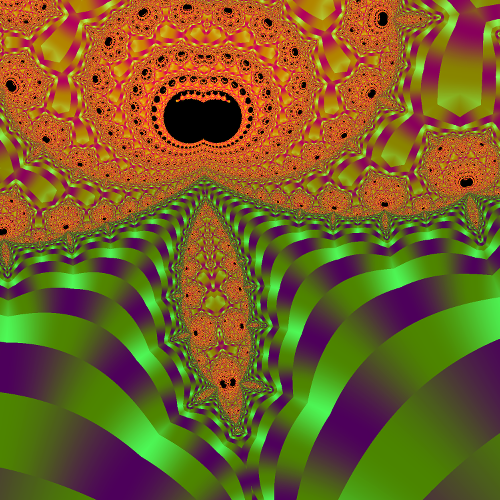結果
| 問題 | No.263 Common Palindromes Extra |
| コンテスト | |
| ユーザー |
 koyumeishi koyumeishi
|
| 提出日時 | 2016-12-04 00:54:41 |
| 言語 | C++14 (gcc 15.2.0 + boost 1.89.0) |
| 結果 |
WA
|
| 実行時間 | - |
| コード長 | 5,339 bytes |
| 記録 | |
| コンパイル時間 | 1,639 ms |
| コンパイル使用メモリ | 120,604 KB |
| 実行使用メモリ | 223,380 KB |
| 最終ジャッジ日時 | 2024-11-27 17:19:00 |
| 合計ジャッジ時間 | 3,194 ms |
|
ジャッジサーバーID (参考情報) |
judge4 / judge3 |
(要ログイン)
| ファイルパターン | 結果 |
|---|---|
| other | AC * 9 WA * 2 MLE * 1 |
ソースコード
#include <iostream>
#include <vector>
#include <cstdio>
#include <sstream>
#include <map>
#include <string>
#include <algorithm>
#include <queue>
#include <cmath>
#include <functional>
#include <set>
#include <ctime>
#include <random>
#include <chrono>
#include <cassert>
#include <tuple>
#include <utility>
using namespace std;
namespace {
using Integer = long long; //__int128;
template<class T, class S> istream& operator >> (istream& is, pair<T,S>& p){return is >> p.first >> p.second;}
template<class T> istream& operator >> (istream& is, vector<T>& vec){for(T& val: vec) is >> val; return is;}
template<class T> istream& operator , (istream& is, T& val){ return is >> val;}
template<class T, class S> ostream& operator << (ostream& os, const pair<T,S>& p){return os << p.first << " " << p.second;}
template<class T> ostream& operator << (ostream& os, const vector<T>& vec){for(size_t i=0; i<vec.size(); i++) os << vec[i] << (i==vec.size()-1?"":" "); return os;}
template<class T> ostream& operator , (ostream& os, const T& val){ return os << " " << val;}
template<class H> void print(const H& head){ cout << head; }
template<class H, class ... T> void print(const H& head, const T& ... tail){ cout << head << " "; print(tail...); }
template<class ... T> void println(const T& ... values){ print(values...); cout << endl; }
template<class H> void eprint(const H& head){ cerr << head; }
template<class H, class ... T> void eprint(const H& head, const T& ... tail){ cerr << head << " "; eprint(tail...); }
template<class ... T> void eprintln(const T& ... values){ eprint(values...); cerr << endl; }
class range{ Integer start_, end_, step_; public: struct range_iterator{ Integer val, step_; range_iterator(Integer v, Integer step) : val(v), step_(step) {} Integer operator * (){return val;} void operator ++ (){val += step_;} bool operator != (range_iterator& x){return step_ > 0 ? val < x.val : val > x.val;} }; range(Integer len) : start_(0), end_(len), step_(1) {} range(Integer start, Integer end) : start_(start), end_(end), step_(1) {} range(Integer start, Integer end, Integer step) : start_(start), end_(end), step_(step) {} range_iterator begin(){ return range_iterator(start_, step_); } range_iterator end(){ return range_iterator( end_, step_); } };
inline string operator "" _s (const char* str, size_t size){ return move(string(str)); }
constexpr Integer my_pow(Integer x, Integer k, Integer z=1){return k==0 ? z : k==1 ? z*x : (k&1) ? my_pow(x*x,k>>1,z*x) : my_pow(x*x,k>>1,z);}
constexpr Integer my_pow_mod(Integer x, Integer k, Integer M, Integer z=1){return k==0 ? z%M : k==1 ? z*x%M : (k&1) ? my_pow_mod(x*x%M,k>>1,M,z*x%M) : my_pow_mod(x*x%M,k>>1,M,z);}
constexpr unsigned long long operator "" _ten (unsigned long long value){ return my_pow(10,value); }
inline int k_bit(Integer x, int k){return (x>>k)&1;} //0-indexed
mt19937 mt(chrono::duration_cast<chrono::nanoseconds>(chrono::steady_clock::now().time_since_epoch()).count());
template<class T> string join(const vector<T>& v, const string& sep){ stringstream ss; for(size_t i=0; i<v.size(); i++){ if(i>0) ss << sep; ss << v[i]; } return ss.str(); }
inline string operator * (string s, int k){ string ret; while(k){ if(k&1) ret += s; s += s; k >>= 1; } return ret; }
}
constexpr long long mod = 9_ten + 7;
class palindromic_tree{
public:
struct node{
map<char, int> e;
int suf;
int len;
long long cnt_s = 0;
long long cnt_t = 0;
};
const string& s;
vector<node> t;
void constract(){
int pos = 1;
for(int i=0; i<s.size(); i++){
while(1){
if( i-t[pos].len-1 >= 0 && s[i-t[pos].len-1] == s[i]) break;
pos = t[pos].suf;
}
if(t[pos].e.count(s[i])){
pos = t[pos].e[s[i]];
if(i<s.size()/2){
t[pos].cnt_s++;
}else{
t[pos].cnt_t++;
}
continue;
}
int nx = t.size();
t.push_back(node{{}, -1, t[pos].len+2, 0, 0});
t[pos].e[s[i]] = nx;
if(i<s.size()/2){
t[nx].cnt_s++;
}else{
t[nx].cnt_t++;
}
if(t[nx].len == 1){
t[nx].suf = 1;
pos = nx;
continue;
}
while(1){
pos = t[pos].suf;
if( i-t[pos].len-1 >= 0 && s[i-t[pos].len-1] == s[i]){
t[nx].suf = t[pos].e[s[i]];
break;
}
}
pos = nx;
}
}
void init(){
t[0].suf = 0;
t[0].len = -1;
t[1].suf = 0;
t[1].len = 0;
}
palindromic_tree(const string& s_) : s(s_), t(2){
init();
constract();
}
};
int main(){
string s,t;
cin >> s,t;
s += "{}"s + t;
t = "";
palindromic_tree p(s);
vector<vector<int>> rt(p.t.size());
for(int i=0; i<p.t.size(); i++){
rt[ p.t[i].suf ].push_back(i);
}
long long ans = 0;
function<pair<long long,long long>(int)> dfs = [&](int pos) -> pair<long long,long long>{
pair<long long,long long> res = {0,0};
for(auto nx : rt[pos]){
if(nx == pos) continue;
auto tmp = dfs(nx);
res.first += tmp.first;
res.second += tmp.second;
}
pair<long long,long long> ret = {res.first + p.t[pos].cnt_s, res.second + p.t[pos].cnt_t};
if(p.t[pos].len > 0){
ans += ret.first * ret.second;
}
return ret;
};
dfs(0);
println(ans);
return 0;
}
